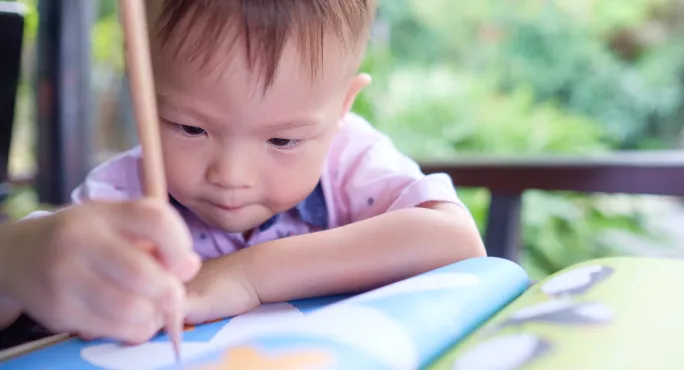- Home
- Ofsted doubles down on phonics requirement for ITT
Ofsted doubles down on phonics requirement for ITT

Ofsted has doubled down on its expectation that teacher training providers teach a specific form of phonics, but clarified that students may be made “critically aware” of other reading methods.
Following a consultation on the proposed changes to teacher training inspection, Ofsted has reiterated that the “clear expectation” is for providers to teach systematic synthetic phonics (SSP) “in line with government expectations”.
The watchdog confirmed that the new framework will be introduced from September 2020, with inspections starting in January 2021.
Related: Ofsted to fail ITT providers over non-phonics reading
Backlash: Ofsted phonics push ‘inappropriate for ITT’
Background: Ofsted’s new focus on curriculum and behaviour in ITT
However, it said the timeframe for the inspection cycle “will be kept under regular review”, due to the disruption caused by the coronavirus pandemic.
Inspectors will also consider the “ambition” of curriculum plans in some cases, where the crisis has hampered providers’ ability to deliver them in full.
James Noble-Rogers, executive director of the Universities’ Council for the Education of Teachers (UCET), said the inspection reforms should have been delayed by 12 months due to the outbreak.
“Ofsted could use the time instead to undertake thematic reviews of key aspects of teacher education,” he said.
In its draft inspection handbook, Ofsted said teacher trainers who do not exclusively teach SSP to their students would be rated “inadequate” for “quality of education and training”.
Following the consultation, it said “trainees should not be taught to use competing approaches to SSP when teaching reading”.
However, the watchdog clarified that “all of this does not mean that trainees cannot be made critically aware that other methods for teaching reading exist”.
The consultation report states: “We have made clear within the handbook that in early years and primary phase inspections, the inspection team will always include a focused review of early reading, including phonics.
“We have also set out within the criteria that to be judged as good or better, training must ensure that trainees learn to teach early reading using SSP.
“This is based on the understanding that learning to decode using SSP is a necessary but not sufficient condition for learning to read. Trainees should not be taught to use competing approaches to SSP when teaching reading.”
It continues: “Some respondents raised concerns that this focus on SSP is restrictive and may undermine the academic freedoms and integrity of ITE partnerships.
“Others suggested that the language in the handbook relating to SSP may lead to a disproportionate focus among ITE partnerships on solely teaching their trainees SSP.
“Some believe that this will prevent trainees from being introduced to other evidence or effective methods for teaching reading and language development.
“We have considered this view and want to clarify our stance on SSP.
“Given the short amount of time trainees have to become qualified teachers, it is vital that trainees become competent in the method of teaching reading that they will be expected to use within early years and school settings.
“Teaching SSP is a requirement of the primary national curriculum and the teachers’ standards. It is also a feature of the government’s compulsory ITT core content framework. SSP is what NQTs will be expected to teach in schools.
“All of this does not mean that trainees cannot be made critically aware that other methods for teaching reading exist.
“However, the clear expectation in the ITE inspection handbook is that partnerships will train trainees to teach SSP in line with government expectations.”
Last year, school standards minister Nick Gibb declared victory in the “phonics wars” by saying that the “debate is over” about the best way to teach reading.
But recent analysis of the evidence by a university lecturer directly contradicted Mr Gibb’s claims.
Overall, Ofsted received more than 300 responses to its public consultation on the inspection reforms.
The majority supported the five key proposals:
- Introducing a new “quality of education and training” judgement, with a focus on the ITE curriculum.
- Applying a new methodology for gathering inspection evidence.
- A single visit, four-day inspection, announced three days in advance.
- Short and long telephone conversations as part of inspection preparation.
- Spring and summer term inspections only.
Amanda Spielman, Ofsted’s chief inspector said: “I’m pleased with the overwhelmingly positive response to our consultation. All trainee teachers should have access to high-quality education and training and our new inspections will help to do just that.
“This new framework will make sure we’re looking at the things that matter most to trainee teachers, so that they can start their career on solid foundations.
“Putting the curriculum front and centre of teacher training is the right thing for new teachers but above all, for children - so they get a broad, rich education that will set them up for life.”
Keep reading for just £1 per month
You've reached your limit of free articles this month. Subscribe for £1 per month for three months and get:
- Unlimited access to all Tes magazine content
- Exclusive subscriber-only stories
- Award-winning email newsletters



